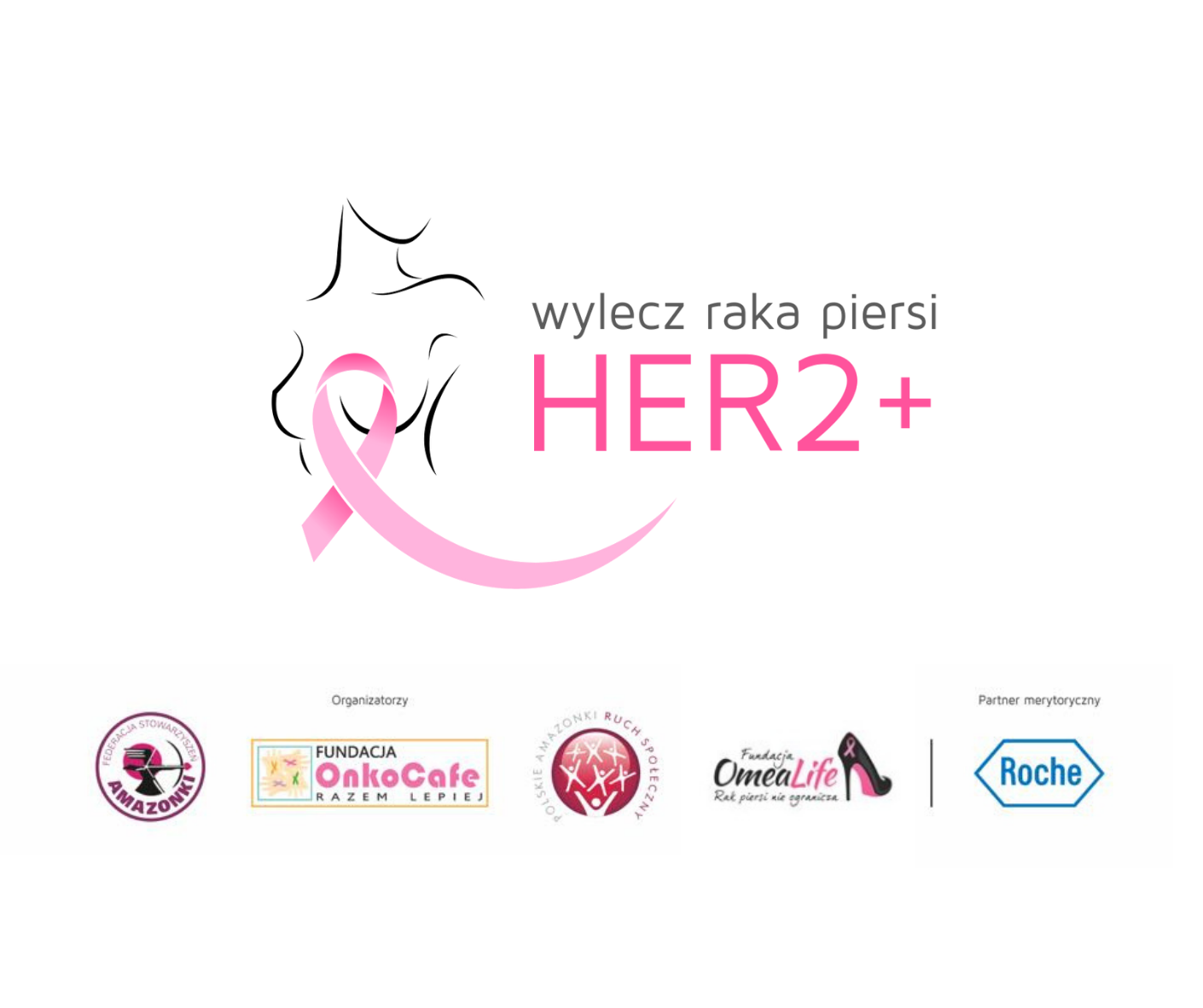You feel a lump in your breast. What is your first thought, what emotions? Fear, horror, disagreement with the disease, the question "why me?", the vision of death? This is why it is important to speak out about the fact that breast cancer can be cured - there are three conditions - you have to detect it early, treat it effectively and make sure that there are no cancer cells left in the body, the so-called residual disease.
So, what is the aim of cancer treatment today? Patients say: killing the reptile. Hopefully, all patients with early HER2-positive breast cancer will soon be able to benefit from the kind of treatment that will end the unwanted chapter in life that is cancer.
There are several subtypes of breast cancer, and every woman should know which subtype of cancer she has. The therapeutic process and prognosis depend on this. One subtype of breast cancer is HER2-positive cancer, i.e. cancer on whose cells there is overexpression of the HER2 receptor. Until recently, this was considered the most aggressive cancer, but drugs have been available for several years to cure this type of cancer. The condition is its early detection. The "Cure HER2+ Breast Cancer" campaign was created for women who have just found out that they have this subtype of cancer. Its aim is to support patients and their relatives from the moment of diagnosis and to educate - because early HER2-positive breast cancer can be cured!
The sooner the cancer is detected, the greater the chance of a complete cure. That is why, on the campaign website " Cure HER2+ breast cancer" - www.wyleczrakapiersi.pl you can find information on preventive examinations. A video on how to examine the breast properly is available. Early detection of breast cancer and prompt diagnosis offer the chance of curing this cancer with optimal treatment, appropriately selected for the individual patient and her cancer subtype. Patients and their relatives are guided step by step through all stages: diagnosis, pre-operative treatment, surgery, post-operative treatment, rehabilitation and psychological support. Women can therefore easily find the reliable information they need most.
Each area includes articles consulted by medical expert Dr Agnieszka Jagiełło-Gruszfeld, an oncologist at the National Cancer Institute in Warsaw, and videos in which experts answer key questions about breast cancer:
- Prof. Rafal Matkowski, who is a surgical oncologist, talks, among other things, about the surgical treatment of breast cancer and the possibilities and benefits of performing a sparing operation instead of a mastectomy;
- physiotherapist Paulina Lewandowska explains why rehabilitation is essential after surgery and when it is best to start, and shows how to perform self-massage to improve the healing process;
- Dr Adrianna Sobol, psycho-oncologist, supports women at a difficult time for them, which is the diagnosis of "breast cancer" - she explains what to do to help themselves, how loved ones can help, advises how to talk to family and friends about the disease. All this is done to make sure that the difficult time of treatment goes as smoothly as possible.
A tremendous support for women with breast cancer are the stories of other patients who share their experiences, their experiences and their emotions on the 'Cure HER2+ Breast Cancer' campaign website. Their stories give hope that this difficult time in life ends one day and many positive lessons can be learned that seem impossible at the beginning of the journey.These stories give strength to women who are just beginning treatment, and the campaign's Facebook profile brings knowledge, support and consolidates people who share similar experiences.
The campaign has also produced a guide for patients with early breast cancer, which is available electronically on the website: https://wyleczrakapiersi.pl/uploads/Wczesny_Rak_Piersi_Poradnik_dla_pacjentek_1_7962282ee6.pdf
To make it easier for patients to choose the right centre, we have created a map and a list of cancer centres that specialise in treating breast cancer on the campaign website. There is also a list of patient organisations from all over Poland where you can find help and support. Women who once faced the diagnosis of 'breast cancer' themselves are now willing to help others - they direct them to the right centres and doctors, provide psychological support or are simply able to talk, which is very important for many women after diagnosis.
Source: dorzeczy.pl

